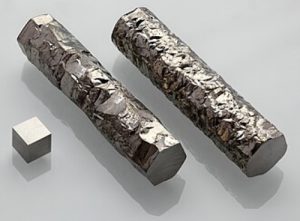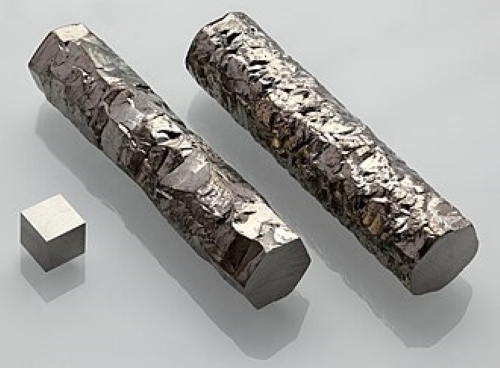Introduction
Zirconium is a lustrous and highly corrosion-resistant transition metal. It finds extensive use in various industries due to its exceptional properties. Zirconium alloys are derivatives of this versatile metal. They are tailored to meet specific industrial demands and offer a range of compositions and characteristics. Here, we delve into the diverse types of zirconium alloys and their applications across multiple sectors.

Types of Zirconium Alloys
1. Zirconium-Copper Alloys (Zr-Cu):
Zirconium-copper alloys combine the corrosion resistance of zirconium with the conductivity of copper. This amalgamation creates materials suitable for electrical applications, such as electrical connectors and conductive components in electronics.
2. Zirconium-Nickel Alloys (Zr-Ni):
Zirconium-nickel alloys exhibit enhanced strength and corrosion resistance. So, they are vital in marine applications, especially for components exposed to seawater. Their ability to withstand harsh, corrosive environments positions them prominently in shipbuilding and offshore structures.
3. Zirconium-Titanium Alloys (Zr-Ti):
Zirconium-titanium alloys boast excellent mechanical properties and high-temperature resistance. They find applications in aerospace engineering, particularly in aircraft components and structural materials, owing to their strength-to-weight ratio and thermal stability.
4. Zirconium-Tin Alloys (Zr-Sn):
Zirconium-tin alloys are known for their exceptional corrosion resistance in acidic and chloride-rich environments. They are extensively utilized in chemical processing industries, such as in the manufacture of heat exchangers and reactors handling corrosive substances.
5. Zirconium-Aluminum Alloys (Zr-Al):
Zirconium-aluminum alloys combine the strength of zirconium with the lightweight properties of aluminum. These alloys find use in the automotive and aerospace sectors, contributing to lightweight structural components that require high strength and corrosion resistance.
6. Zirconium-Niobium Alloys (Zr-Nb):
Zirconium-niobium alloys are also known as Zircaloy. They possess exceptional resistance to corrosion and neutron absorption. These alloys are fundamental in nuclear reactor components, including fuel cladding due to their stability in high-radiation environments.
Related reading: Zirconium Alloys 101
Applications of Zirconium Alloys
Zirconium alloys stand as pivotal materials across multifaceted industries, owing to their exceptional properties that cater to diverse applications.
–Nuclear Sector
In the realm of nuclear energy, these alloys play a critical role. Their remarkable resistance to corrosion and neutron absorption renders them indispensable in nuclear reactors, particularly for fuel cladding and structural components. This pivotal function ensures the safety and efficiency of nuclear power generation.
–Chemical Processing
Beyond the nuclear sector, zirconium alloys find extensive utilization in chemical processing. Their innate resistance to aggressive chemicals makes them a go-to choice for equipment and machinery in chemical plants, safeguarding against corrosion and ensuring the integrity of processing systems.
–Aerospace and Aviation
In the aerospace and aviation domains, these alloys contribute significantly to the development of lightweight, high-strength components. From aircraft engines to structural materials, zirconium alloys aid in enhancing performance while maintaining durability, crucial for the stringent demands of aviation.
–Marine Uses
Furthermore, in marine engineering, zirconium alloys act as shields against corrosion in harsh marine environments. Their robustness and resilience make them invaluable in shipbuilding and the construction of offshore structures.
The versatile nature of zirconium alloys enables their application across vital industries, where their corrosion resistance, strength, and durability prove instrumental in enhancing safety, efficiency, and longevity in various operational environments.
Conclusion
Zirconium alloys continue to evolve and offer tailored solutions for diverse industrial needs. Their versatility, strength, and resistance to corrosion position them as crucial materials across various sectors. These features also contribute to advancements in technology, engineering, and materials science. As research and development persist, the spectrum of zirconium alloys is expected to expand. They usher in innovations and novel applications in an array of industries.
Advanced Refractory Metals (ARM) is a leading supplier offering a diverse range of zirconium alloys in various sizes and grades. Whether you require specific grades or varying sizes, ARM provides zirconium alloys tailored to your requirements. Please explore our homepage for comprehensive information regarding our zirconium offerings.
Reference:
[1] Zirconium. (2023, December 2). In Wikipedia. https://en.wikipedia.org/wiki/Zirconium
